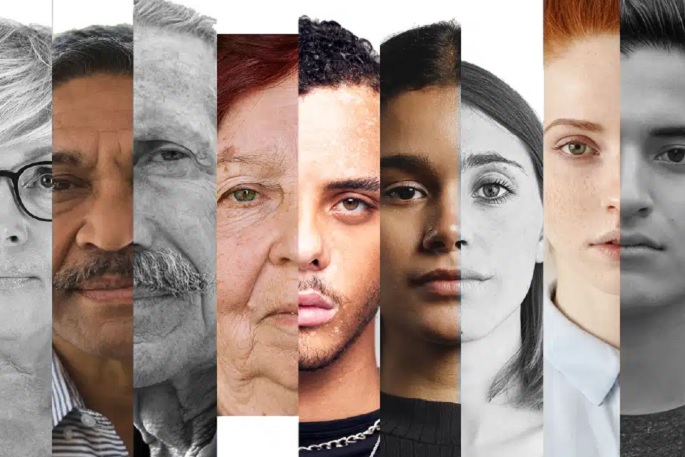Cases of image based abuse, also called ‘sextortion' are on the rise, despite victims afraid, ashamed or embarrassed to make a complaint.
NetSafe says offenders often target victims by tricking them into sending sexually explicit material before blackmailing them – threatening to share the content unless they pay money.
Katikati Police Sergeant Steve Hindmarsh says he received reports of teenage males being blackmailed into paying money after sending inappropriate pictures to strangers on social media between March 31 and April 5.
His advice to anyone who receives messages and friend requests from complete strangers is to ignore them, block them and report them to the administrator of whatever app you are using.
'Don't pay the offenders any money.
'Often these scammers are part of very organised groups and can be based anywhere in the world. They will pick on victims in foreign countries so that it makes it very difficult to trace.”
The sergeant says the scammers use fake profiles of attractive people to tempt their victims into conversation.
'I believe that a large number of people do not report these incidents out of sheer embarrassment at having fallen for the ruse.”

Scammers are targeting and blackmailing people into paying money after sending inappropriate pictures to strangers on social media. Photo: NetSafe.
New Zealand Police received 618 reports of sextortion between 2020 and the end of 2022.
Of these, 54 per cent of all victims were males under the age of 25.
The youngest reported victims of sextortion in New Zealand during this period were two 10-year-old children.
Sharing or threatening to share nude or nearly nude images/videos of someone else without their consent can be an offence under the Harmful Digital Communications Act and a potential offence under other Acts.
If prosecuted under the Harmful Digital Communications Act, the penalties can be a fine of up to $50,000 or up to two years' jail for an individual, and up to $200,000 for a body corporate.
How does a friendly chat turn into sinister sextortion?
Steve says the situation occurs when an innocent person notices a friend request from a stranger on the internet.
'This can be on any number of social media platforms. Or the victim could be in a chat room talking with a number of people and the offender will gain enough trust to become friendly with the potential victim.”
He says accepting friend requests from strangers who have attractive profile pictures is a common way for the offending to start though.
'The victim can then be enticed into talking and eventually they believe that there is a romantic link with their new friend. One thing leads to the other and often the offender will suggest they swap explicit photos of each other.
'They will send explicit photos of themselves and include a face shot and encourage the victim to do the same thing. The victim thinks it's safe to do the same believing that the person they are talking to is genuine and oblige by sending explicit photos and a photo of their face back.”
 The offender will gain enough trust to become friendly with the potential victim. Photo: NetSafe.
The offender will gain enough trust to become friendly with the potential victim. Photo: NetSafe.
Steve says this is when the offender begins the process of trying to obtain money from the victim that they have now entrapped.
'The offender will then threaten to send the explicit photos they now have of the victims to everyone in their contact list unless they transfer money to a specified account.
'The offender will also send screen shots of the victims contact list to the victim to prove that they now the ability to carry out their threat. At this point the victim is horrified that they have been conned and are fearful of their explicit photos been send to friends and family.”
Steve says the victim now has the choice of paying up the money or risk having photos sent to all of their contacts. The victim either ignores the threat, hopes for the best, or they pay it.
'Even if payment is made it doesn't necessarily mean the offender will stop there. Often they will demand more and keep going until the victim realises that the demands will never stop.”
He says many times the victims of these scams will be teenagers and the psychological effects on them will be immense.
'They will be embarrassed and ashamed and they feel quite violated.”
Victims of this type of crime are from all age groups, backgrounds and sexes.
Sexual harm support available
Tautoko Mai Sexual Harm Support's social change and prevention manager Julie Sach advises people to never share photographs.
'Just don't do it. It can have lasting impacts.
'However, if it does happen to you or someone you care about, it's important that this gets reported so we can understand the extent of the problem, so we can do something about it.
'Police are warning this is on the increase and seems to be overseas people who are doing it for the sole purpose of blackmailing. Don't pay them any money. Don't respond to them. Let a parent or caregiver know. Or contact us and get some help.”
 Tautoko Mai provide services to help people who have experienced sexual harm. Photo: Tautoko Mai Sexual Harm.
Tautoko Mai provide services to help people who have experienced sexual harm. Photo: Tautoko Mai Sexual Harm.
Tautoko Mai Sexual Harm Support have counsellors, social workers, nurses and doctors available to help support people.
Julie says sextortion falls within the scope of their services as it's about sexual harm.
'We have heeded the warning from police that it's on the rise.”
She also has advice for parents and caregivers.
'Don't think this won't happen to your teenagers. Make gentle inquiries, and be open to hearing about it. Don't overreact but support them through it.”
The double blow of losing what seemed a meaningful relationship
Some people can't accept that the relationship was a part of the ruse, and also false.
Netsafe New Zealand chief online safety officer Sean Lyons says the financial and psychological impact comes as a double blow for the person who thinks they have formed a meaningful relationship with someone over a period of time.
'The thing about this is they've talked about themselves in good faith which is how you build relationships with people. But if the intent was to blackmail then all they shared and talked about themselves becomes part of the scam,” says Sean.

Victims are also impacted by having their trust in another shattered, causing the loss of confidence in people online. Photo: Supplied.
'The threat they are using is now I have all this stuff about you, where you go, your work, your family and they threaten to use all that information, saying they've not got this image or video and can share that to all of those places and people.
'So yes it is an extortion and terrible but also it is a damaging of the trust. So all the feelings about the other person are gone. It's all a criminal act."
Shame and shattered confidence
Sean says while concerned about the financial impact, victims are also impacted by having their trust in another shattered, causing the loss of confidence in people online.
'It impacts in the way people who educate themselves, do online transactions and it has far-reaching consequences. It's very much a concern for us and those directly related or involved.”
 Some people can't accept that the relationship, which seemed meaningful, was a part of the ruse, and also false. Photo: Netsafe.
Some people can't accept that the relationship, which seemed meaningful, was a part of the ruse, and also false. Photo: Netsafe.
He says Netsafe have spoken to people who are afraid to physically go out.
'They have a sense of shame or embarrassment around it, wondering if people may know.”
He says the effects of psychological trauma are impacting people as thoughts of 'I did something wrong” and 'it's my fault” play in their minds.
'The scammers are skilled and trained in it. These are people who seek to victimise you and have done it many times before. They know how to move a person from a point of trust on to extortion. We need to help people get over shame. They are targets of a criminal act by skilled operators.”
A bad year for scams
Sean says the basis of so many scams is 'the trust part” with romance or extortion.
'Someone can set up a false Facebook account and borrow someone else's trust.
'It's all about building trust by stealing trust. We are convinced to do these things. They are impersonating brands or people such as IRD and banks. The mechanism is the same and the end game is harm in all sorts of ways.”
 An innocent person can notice a friend request from a stranger on the internet from any number of social media platforms. Photo: Netsafe.
An innocent person can notice a friend request from a stranger on the internet from any number of social media platforms. Photo: Netsafe.
Scams don't look like an overseas official from a foreign nation.
'But the bones of the scam are the same mechanism.”
Sean says sometimes harm is in the image that are used to blackmail people to produce more images and video.
'The shame is so great that talking about it is so difficult.”
He says it's been a bad year for scams.
'More people are reporting. We have had the biggest report year in our history.”
Netsafe making impact against Sextortion
In Netsafe's quarterly report in March 2023, CEO Brent Carey says they are re-examined their approaches to Sextortion/blackmail webcam harm types and have decided to bring a number of these matters within jurisdiction and therefore into the personal harm reporting scheme.
'We are expecting Sextortion reporting to Netsafe to grow.”
Netsafe has launched Netsafe Lab with the goal for the lab become the leading entity for online safety technical, policy, data and research folks in New Zealand.

Netsafe CEO Brent Carey. Photo: Supplied.
Netsafe's focus on young people this quarter included welcoming a new cohort of their Youth Action Squad, launching our kete of materials to schools and a new interactive online learning platform for use in classrooms.
'The bigger impact we have been able to make in education has come about because of a temporary uplift in funding negotiated and finalised between Netsafe and the Ministry of Education last quarter to strengthen cyber security and digital services in kura and schools,” says Brent.
'We have also been paying close attention to trends in the incitement to commit suicide/self harm space."
 The effects of psychological trauma are impacting people as thoughts of 'I did something wrong” and 'it's my fault” play in their minds. Photo: Netsafe.
The effects of psychological trauma are impacting people as thoughts of 'I did something wrong” and 'it's my fault” play in their minds. Photo: Netsafe.
'Together with agencies such as the Suicide Prevention Office, Mental Health Foundation, Classification Office, and Ministry of Education we have been meeting voluntarily and regularly to work on the establishment of a protocol for responding quickly when 'suicide content erupts online”; development of 'response materials” that can be pushed out when risky material is going viral; and establishing better working relationships with one another and across tech companies.
'We hope that the work of the group will be recognised and funded. It is important work and highlights the willingness of so many to create safe and positive online environments.”
Be on your toes
Sergeant Hindmarsh says internet fraud is huge and everyone needs to be on their toes.
'Be careful who you trust. On the other hand where a victim knows the identity of a person and they are trying to obtain money through blackmail then Police will act on these complaints where we can.”
'This activity is abhorrent,” says Julie.
'It's horrible. People are so ashamed and embarrassed about it. We have to stand up and say it's not okay.”
How to spot sextortion offending:
- Meeting on one app, then being encouraged to continue a conversation on a different platform could be an indicator.
- Inconsistencies with a profile or language, and there might be signs that English is a second language.
- Introduction of sexualised conversations.
- The other person may say that their webcam or microphone not working for video calls/chats, so they could be avoiding giving their true identity.
For victims:
- Avoid sending any more images or videos - even if they are threatening you.
- Remember - once you have complied with their demands there is nothing preventing them targeting you again.
- Save all the online chat, immediately take screenshots. This is important for making a report to the police, we need all the evidence that you can gather.
- Block the profile.
- Report the content to the platform (e.g. Facebook, Snapchat, PornHub) it is on and request the content is removed
- Make a report to Police (via 105) or Netsafe to find out what other options are available to you
For parents and caregivers:
- Supervision is essential. This means knowing what your children are doing online, who they are interacting with and what platforms, apps or games they are using.
- Having open conversations, often. The most important tip we can give any parent or carer is to start talking to your child about their online activities
- Check privacy settings. We recommend parents and carers research and understand app settings, including privacy settings. This could include turning off location settings, setting profiles to private, or turning off chat functions.
- Be approachable if your child needs help. Coming forward isn't always easy, and children may feel reluctant to tell you about online issues if they believe they will be punished or have their devices taken away. They must know that it is ok to speak to you or any other trusted adult if something doesn't feel right.
- Long term impact. Offenders will often use tactics such as fear or shame to manipulate young people, and make them feel alienated or trapped, like they cannot escape the situation.These situations can be very distressing and can have long term-impacts, and need to be addressed appropriately. Your child is a victim of online child sexual exploitation, and they need your support.
- Report suspicious behaviour. Seek help and support, and report inappropriate or suspicious behaviour online
Where to report offending:
New Zealand Police
105 (non-Emergency)
111 (Emergency)
Netsafe
Text ‘Netsafe' to 4282
Email: help@netsafe.org.nz (link sends e-mail)
Call Netsafe toll free on 0508 NETSAFE (0508 638 723)
Online report form at netsafe.org.nz/report
Netsafe helpline is open from 8am – 8pm Monday to Friday and 9am – 5pm on weekends.
If you need support contact Tautoko Mai on 0800 227233.



0 comments
Leave a Comment
You must be logged in to make a comment.